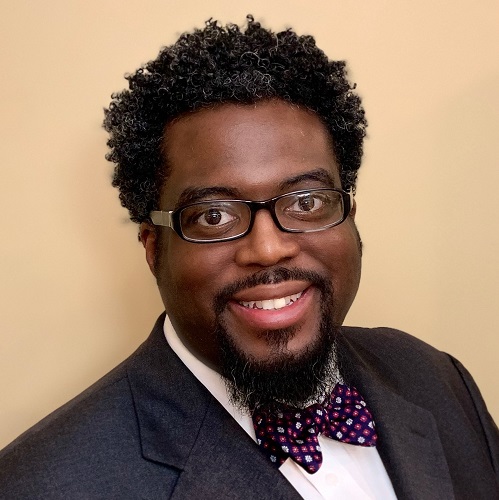Why Black history? And why in church?
This year, as part of my seminary’s new curriculum, we added a required course that directly addresses biblical interpretation, racism, and anti-racism. One of the first texts my colleague and I had students read is Terrence Keel’s Divine Variations. Keel makes the case that the supremacist logic undergirding race science, even as it aims to differentiate itself from religion through secularization, is resolutely grounded in Christian thought. That is, Christianity’s supersessionism of Jewish thought and texts and its subsequent antagonism toward Jewish people lay the foundation, the urtext for modernity’s scientific racism.
Our goal is, in part, to help students resist the temptation to think that racism in Christianity is the work of misinterpretation or pure misappropriation of the biblical text or Christian witness. The hard word is that Christianity’s concern with the universal and the sacred is paradoxically bound to a need to “other,” to determine where the outside begins and the inside ends.
For me, a Black Christian preacher, I think the church needs Black history, not to redeem it from its supremacist orientation, but to reveal its blindspots and to show where the Christian witness has no clothes.
Black history: “Telling the story”
The Transatlantic Slave Trade, as some scholars argue, marks the singular event of Western modernity. While some might view this as hyperbolic, the facts of the trade are staggering. From 1517 to 1875, over 12 million documented Africans appeared in ship ledgers for the sake of the Transatlantic Slave Trade. For perspective, my oldest living relative, my paternal grandmother, is 90; this would mean 381 Africans boarding ships for enslavement each day of her 90 years of life. This number is unfathomable, and confronting it presents a problem for which no remedy seems sufficient. The geopolitical world we inhabit is not conceivable without such a travesty.
While we may seek Christian theology and practice for redemptive relief, it is also the case that Christianity was not only complicit in the Trade but instrumental in providing theological rationale to support its inception and later its abolishing. Black history is a challenge for those who frame our theology from the pulpit because confronting the practices historically and presently shaping Black existence, placing Black people globally on the underbelly of social security, could well undermine the entire validity of modern civilization.
Black history: Pressing the claim
Black history as preacher names a pressing theological and cultural issue for the world. First, historically, Black history narrates forms of oppression so vile and brutal that they challenge the possibility of human dignity and rights. Socially, it’s so damning that steps have been taken to ban its telling in public schools. The steady increase in book bans and curriculum modifications restricting the content and delivery of Black history and perspectives, whether it’s Florida’s ban on Advanced Placement African American Studies courses or Arkansas House Bill 1218, which aimed to ban teaching The New York Times’ groundbreaking 1619 Project, all underscore the danger Black history’s telling poses to society.
Black history as preacher risks revealing the underlying principle of our current moment; it names the sin that so easily besets the presumed civility of our social formation. To narrate the unabridged stories of Black dehumanization and anti-humanization demonstrates that the past continues into the present.
Black history: Proclaiming a scandalous Good News
If preachers reduce Black History Month to a simple celebration of Black stories of achievement and success against the odds, we fail to recognize the conditions that made Black achievement so monumental. Put differently, to preach Black History must mean grappling with the Christian and secular logics that suppress Black flourishing. Black people do not suffer at the hands of unknown perpetrators. While celebrating affords catharsis, at some point we have to contend with antiblackness as a terminal illness.
The scandal of Black history lies in its resemblance to the Gospel itself; it brings us to the end of human agency and the necessity for divine intervention. Black history reminds us that the world remains inadequate for a reliable and enduring hope. In my view, for preaching and its accompanying theologies to be effective in the face of an antiblack world, they must assist us in repeatedly discerning the limitations of human agency and worldmaking and the potentiality of God’s sovereign fidelity to accomplish what no other power can.
Black history should once again direct us to the God who excels in accomplishing things thought impossible. Black faith proclaims the good news that Black suffering and Black anti-humanization do not have the final say. Black history as preacher is a gift to the church, not because it aligns with the church’s modus operandi for the last 400 years, but because it persists despite it.
Black history: An invitation
So, as we enter Black History Month and Lent, let us not shy away from confronting the mortality of this age and identifying the failures of the past that have given rise to the present.
By doing so, we acknowledge our need for a faith beyond what our eyes can see; a faith that is a tangible expression of sovereign dependence and not human wisdom. Even as we recognize the significance of our actions and care for one another, we yearn for a world where antiblackness is no more.
As preachers, we midwife holy imagination in our communities by grappling with the existential questions and realities that bring us to our end—Black history is such an invitation. The end of proclamation is not the production of better humans, citizens, or church members, but the working out of our soul’s salvation with fear and trembling.
The sin that is the dehumanization of Black lives can only find its end in God working in us to will and to do God’s good pleasure. This may very well be a foolish task, but God has chosen the foolish things of the world to confound the wise.

